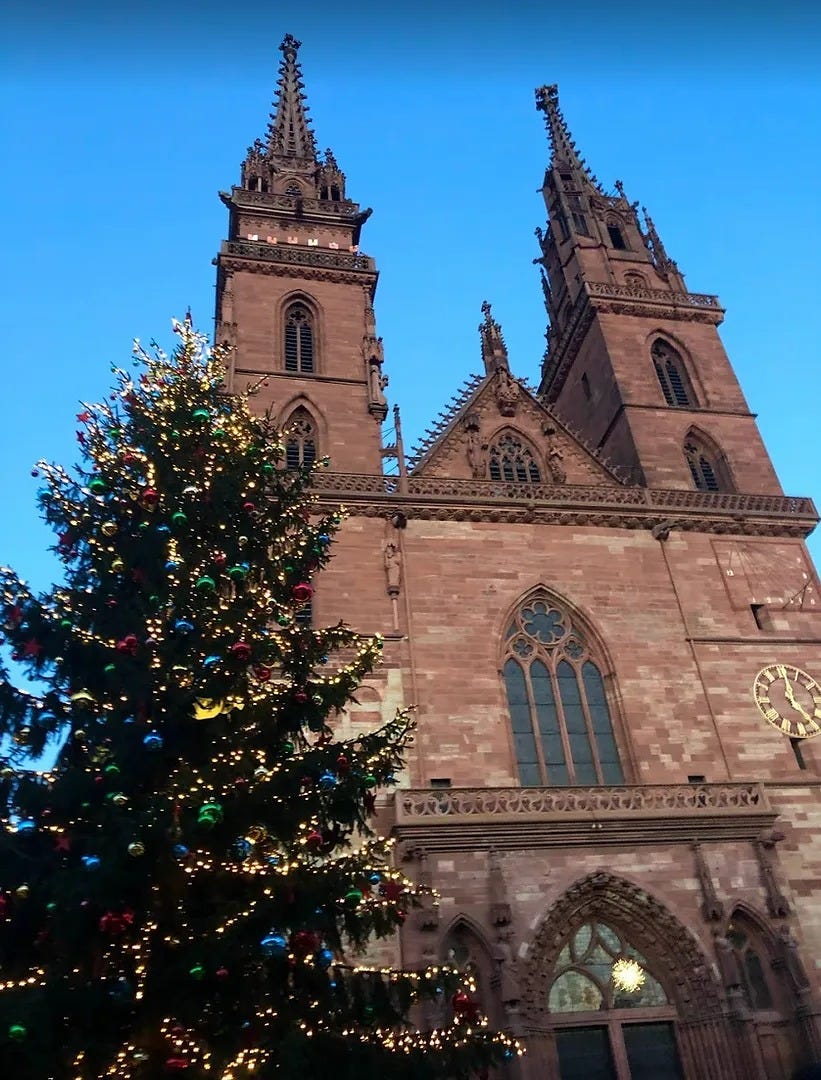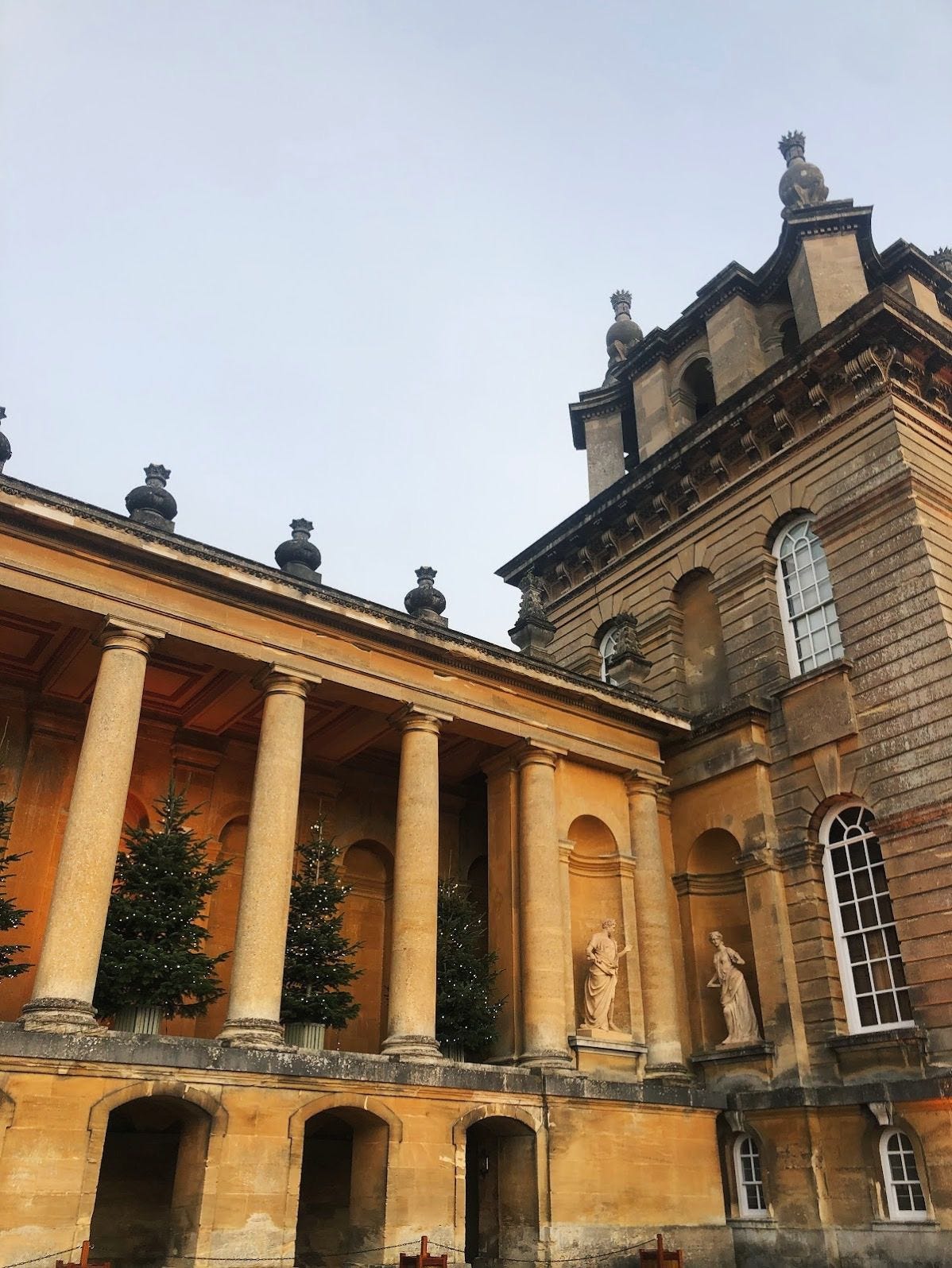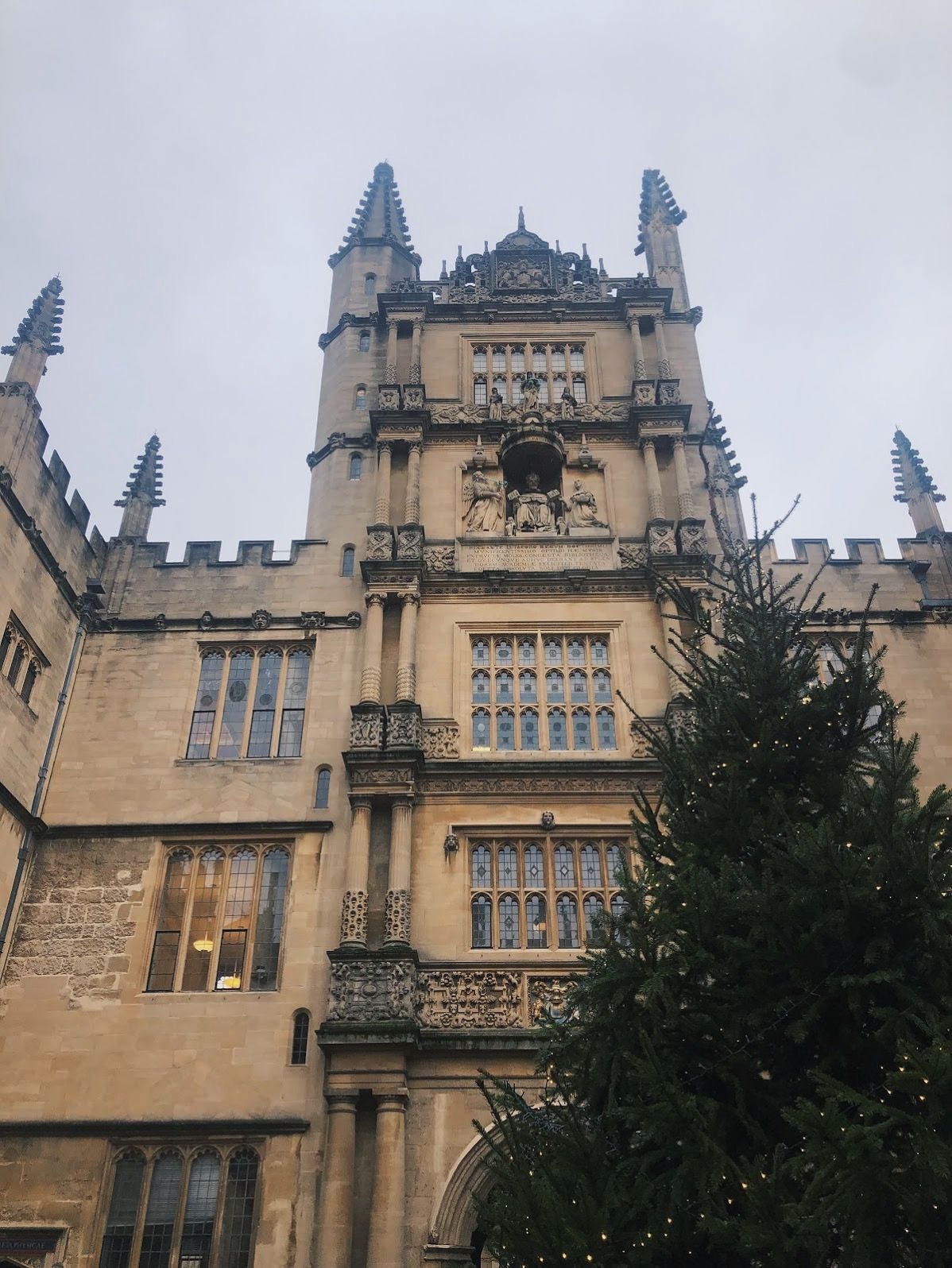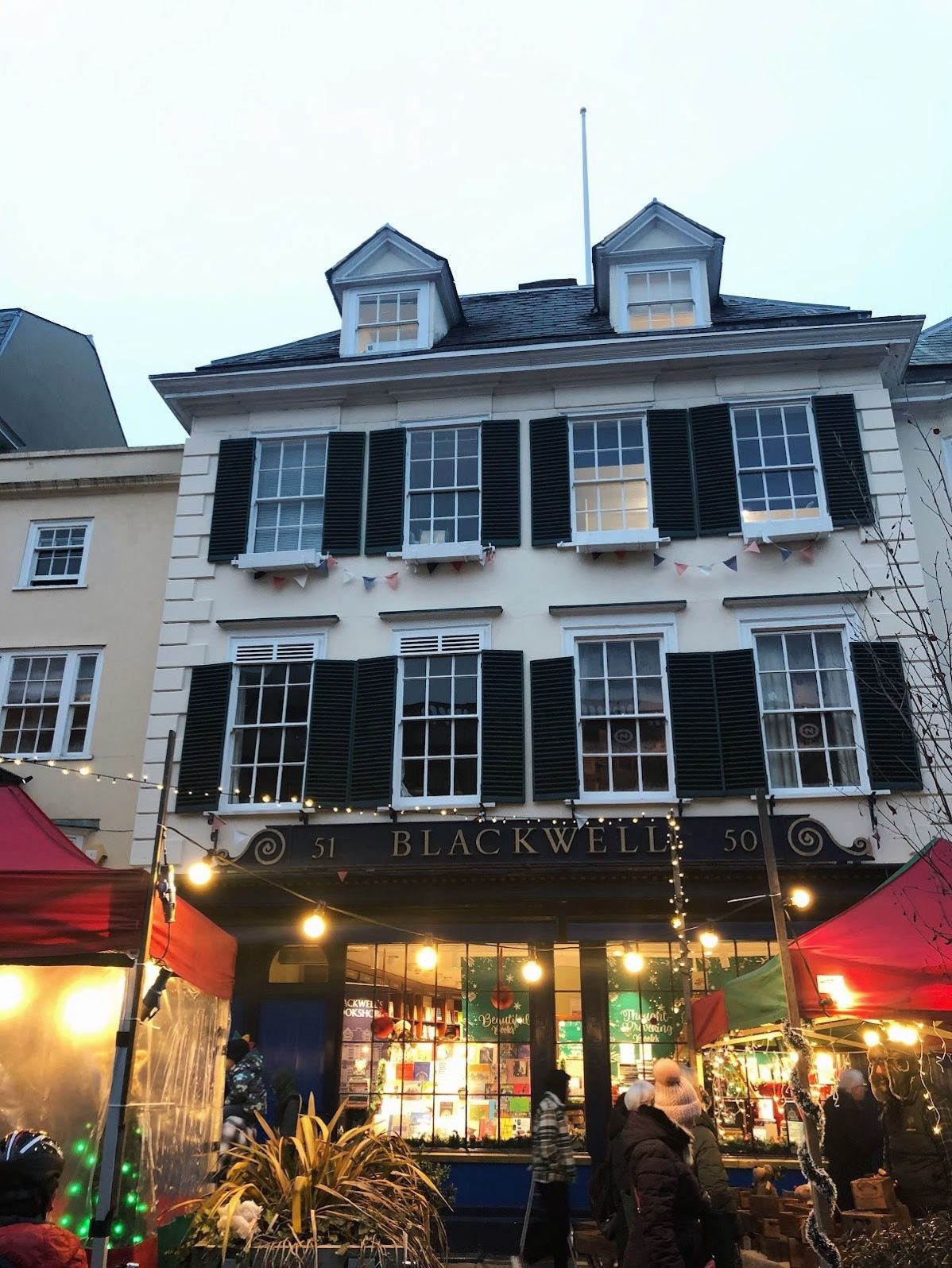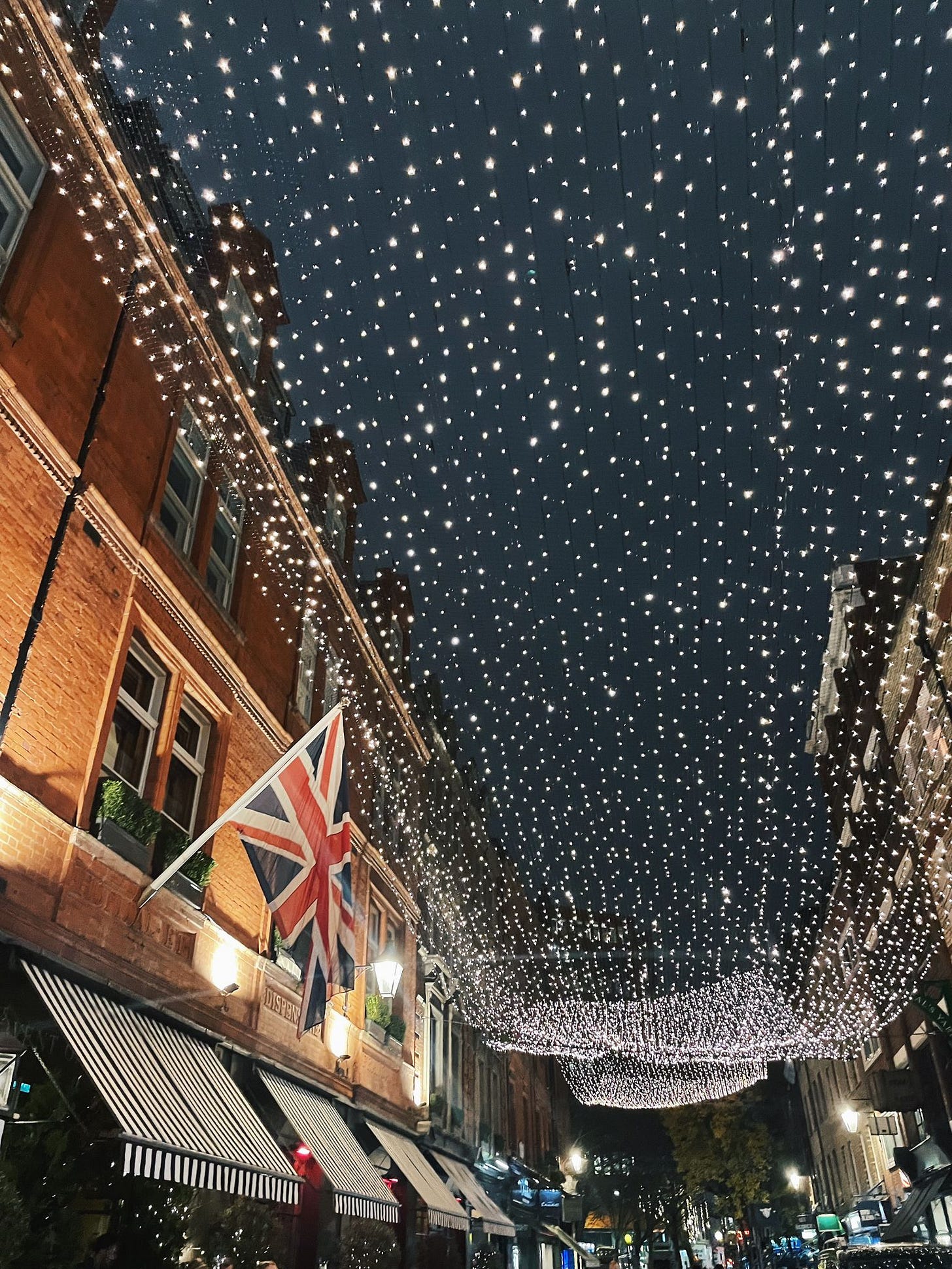Advent Themes and a 'Typological' Reading
Advent has always been the season in the church calendar that draws me in the closest. It's something about the paradoxes and yet the union of opposites—peasants and kings, waiting and fulfilment, light and dark, feminine and masculine—all these gleaming ironies create a story which can speak tenderly to each of us. There's a certain suspension that the season is meant to produce in you while you carefully straddle its tensions, harvesting a kind of internal longing for the brightness of Christmas day as you sit eagerly in a peculiar darkness.
From a literary perspective, I've always found Advent to be highly satisfying. Especially if you engage in a more typological reading1, which is common to the early church fathers and Jewish hermeneutical traditions. This method interprets events, people, and symbols in the Old Testament as prefigurations or "types" of Christ and His work in the New Testament. For example, if you begin to flip through the subheadings in the beginning of the book of Matthew, you might oddly feel like you're working your way through the events in Exodus—mysteriously echoing Jesus as the true and better Moses.
I'll briefly look at two Advent concepts which have this thematic mirroring effect now:
Eve and Mary
Reading Abigail Favale's book The Genesis of Gender, some Hans Boersma, and Edith Stein, I've recurringly come across this age-old connection between two of the most important women in the bible, a parallel that the church father Irenaeus was particularly fond of making2. Favale writes, "Some interpreters, perhaps most famously Milton in Paradise Lost, have made much of the fact that the serpent tempts the woman, using this as justification to portray women as weak and morally compromised, gateways to sin." But instead of leaving the story there about womankind, a typological reading sees Mary's willingness and openness to God as mending Eve's defiance.
Favale continues, "From that perspective, one can see a similitude between the narrative of the Fall and the Annunciation, when Mary is approached by a divine messenger… Mary's assent to become the Mother of God Incarnate seeks to correct the opposition introduced by Eve's "no." She is the new Eve. Her "yes" to God untwists the knot of Eve's "no." The redemptive order harkens back to the beginning."
The stories of the original mother of humanity and the mother of God—women separated by spans of time—are contrasted and then joined together to form a completed narrative arc that renders the shape of salvation.
The First and Second Coming
In the Middle Ages, Advent became a time for not only looking to Christ’s first coming, but also his second. This meant it was a season of confession, expectation, and even trepidation. It had an extra edge to it. This is why medieval hymns and many liturgies of the church look to both advents in their content. Typologically, the church juxtaposes the first as a ‘humble coming’ to the stables of Bethlehem and the second as a majestic coming of a great king3. Note how T.S. Eliot takes up this theme in his poem ‘The Cultivation of Christmas Trees’:
“The accumulated memories of annual emotion
May be concentrated into a great joy
Which shall be also a great fear, as on the occasion
When fear came upon every soul:
Because the beginning shall remind us of the end
And the first coming of the second coming.”
In his book Waiting on the Word, Malcolm Guite advocates for a ‘triple focus of Advent’, looking to the first and second comings but also welcoming the ‘many other advents’ in between, when God is continually coming to us in the daily moments of our lives and in the sacraments.
A Few Resources
VCS Advent 2024 Calendar: Daily commentary on pieces of art curated by the Visual Commentary on Scripture project out of King’s College London.
My Favourite Advent Companions with
on : For a full list of recommendations from a writer I loveWaiting on the Word: A poem a day for Advent, Christmas and Epiphany by Malcolm Guite: Going through this book with a few friends. Each day has a poem and a reflection.
The Keeping Company: Was given this wooden advent wreath and it will be a lifelong keepsake. Doing daily advent readings aloud while the candles are lit (pictured above)!
Advent Vignettes Series by Ekstasis Magazine: Follow along on Instagram as Ekstasis releases one of these a week—a meditation or poem accompanying a piece of art.
Advent Poetry Vault
As Malcolm Guite says, ‘Perhaps only poetry can help us fathom the depths and inhabit the tensions of these paradoxes’ that we find in the Advent story. Below you’ll find a short collection of poems to help you do so throughout the month of December.
1. The House of Christmas by G.K. Chesterton
There fared a mother driven forth
Out of an inn to roam;
In the place where she was homeless
All men are at home.
The crazy stable close at hand,
With shaking timber and shifting sand,
Grew a stronger thing to abide and stand
Than the square stones of Rome.
For men are homesick in their homes,
And strangers under the sun,
And they lay on their heads in a foreign land
Whenever the day is done.
Here we have battle and blazing eyes,
And chance and honour and high surprise,
But our homes are under miraculous skies
Where the yule tale was begun.
A Child in a foul stable,
Where the beasts feed and foam;
Only where He was homeless
Are you and I at home;
We have hands that fashion and heads that know,
But our hearts we lost - how long ago!
In a place no chart nor ship can show
Under the sky's dome.
This world is wild as an old wives' tale,
And strange the plain things are,
The earth is enough and the air is enough
For our wonder and our war;
But our rest is as far as the fire-drake swings
And our peace is put in impossible things
Where clashed and thundered unthinkable wings
Round an incredible star.
To an open house in the evening
Home shall men come,
To an older place than Eden
And a taller town than Rome.
To the end of the way of the wandering star,
To the things that cannot be and that are,
To the place where God was homeless
And all men are at home.
2. After Annunciation by Madeleine L’Engle
This is the irrational season
when love blooms bright and wild.
Had Mary been filled with reason
there’d have been no room for the child.
3. The Coming by Ronald Stuart Thomas
And God held in his hand
A small globe. Look he said.
The son looked. Far off,
As through water, he saw
A scorched land of fierce
Colour. The light burned
There; crusted buildings
Cast their shadows: a bright
Serpent, A river
Uncoiled itself, radiant
With slime.
On a bare
Hill a bare tree saddened
The sky. many People
Held out their thin arms
To it, as though waiting
For a vanished April
To return to its crossed
Boughs. The son watched
Them. Let me go there, he said.
4. Made Flesh by Luci Shaw
After
the bright beam of hot annunciation
Fused heaven with dark earth
His searing sharply-focused light
Went out for a while
Eclipsed in amniotic gloom:
His cool immensity of splendor
His universal grace
Small-folded in a warm dim
Female space—
The Word stern-sentenced to be nine months dumb—
Infinity walled in a womb
Until the next enormity—the Mighty,
After submission to a woman’s pains
Helpless on a barn-bare floor
First-tasting bitter earth.
Now
I in him surrender
To the crush and cry of birth.
Because eternity
Was closeted in time
He is my open door
To forever.
From his imprisonment my freedoms grow,
Find wings.
Part of his body, I transcend this flesh.
From his sweet silence my mouth sings.
Out of his dark I glow.
My life, as his,
Slips through death’s mesh,
Time’s bars,
Joins hands with heaven,
Speaks with stars
5. Kenosis by Luci Shaw
In sleep his infant mouth works in and out.
He is so new, his silk skin has not yet
been roughed by plane and wooden beam
nor, so far, has he had to deal with human doubt.
He is in a dream of nipple found,
of blue-white milk, of curving skin
and, pulsing in his ear, the inner throb
of a warm heart’s repeated sound.
His only memories float from fluid space.
So new he has not pounded nails, hung a door
broken bread, felt rebuff, bent to the lash,
wept for the sad heart of the human race.
6. Annunciation by Scott Cairns
Deep within the clay, and O my people
very deep within the wholly earthen
compound of our kind arrives of one clear,
star-illumined evening a spark igniting
once again the tinder of our lately
banked noetic fire. She burns but she
is not consumed. The dew lights gently,
suffusing the pure fleece. The wall comes down.
And—do you feel the pulse?—we all become
the kindled kindred of a King whose birth
thereafter bears to all a bright nativity.
7. Remembering that it happened once by Wendell Berry
Remembering that it happened once,
We cannot turn away the thought,
As we go out, cold, to our barns
Toward the long night’s end, that we
Ourselves are living in the world
It happened in when it first happened,
That we ourselves, opening a stall
(A latch thrown open countless times
Before), might find them breathing there,
Foreknown: the Child bedded in straw,
The mother kneeling over Him,
The husband standing in belief
He scarcely can believe, in light
That lights them from no source we see,
An April morning’s light, the air
Around them joyful as a choir.
We stand with one hand on the door,
Looking into another world
That is this world, the pale daylight
Coming just as before, our chores
To do, the cattle all awake,
Our own frozen breath hanging
In front of us; and we are here
As we have never been before,
Sighted as not before, our place
Holy, although we knew it not.
8. The Cultivation of Christmas Trees by T.S. Eliot
There are several attitudes towards Christmas,
Some of which we may disregard:
The social, the torpid, the patently commercial,
The rowdy (the pubs being open till midnight),
And the childish – which is not that of the child
For whom the candle is a star, and the gilded angel
Spreading its wings at the summit of the tree
Is not only a decoration, but an angel.
The child wonders at the Christmas Tree:
Let him continue in the spirit of wonder
At the Feast as an event not accepted as a pretext;
So that the glittering rapture, the amazement
Of the first-remembered Christmas Tree,
So that the surprises, delight in new possessions
(Each one with its peculiar and exciting smell),
The expectation of the goose or turkey
And the expected awe on its appearance,
So that the reverence and the gaiety
May not be forgotten in later experience,
In the bored habituation, the fatigue, the tedium,
The awareness of death, the consciousness of failure,
Or in the piety of the convert
Which may be tainted with a self-conceit
Displeasing to God and disrespectful to children
(And here I remember also with gratitude
St.Lucy, her carol, and her crown of fire):
So that before the end, the eightieth Christmas
(By “eightieth” meaning whichever is last)
The accumulated memories of annual emotion
May be concentrated into a great joy
Which shall be also a great fear, as on the occasion
When fear came upon every soul:
Because the beginning shall remind us of the end
And the first coming of the second coming.
9. The Journey of the Magi by T.S. Eliot
A cold coming we had of it,
Just the worst time of the year
For a journey, and such a long journey:
The ways deep and the weather sharp,
The very dead of winter.'
And the camels galled, sorefooted, refractory,
Lying down in the melting snow.
There were times we regretted
The summer palaces on slopes, the terraces,
And the silken girls bringing sherbet.
Then the camel men cursing and grumbling
and running away, and wanting their liquor and women,
And the night-fires going out, and the lack of shelters,
And the cities hostile and the towns unfriendly
And the villages dirty and charging high prices:
A hard time we had of it.
At the end we preferred to travel all night,
Sleeping in snatches,
With the voices singing in our ears, saying
That this was all folly.
Then at dawn we came down to a temperate valley,
Wet, below the snow line, smelling of vegetation;
With a running stream and a water-mill beating the darkness,
And three trees on the low sky,
And an old white horse galloped away in the meadow.
Then we came to a tavern with vine-leaves over the lintel,
Six hands at an open door dicing for pieces of silver,
And feet kicking the empty wine-skins.
But there was no information, and so we continued
And arriving at evening, not a moment too soon
Finding the place; it was (you might say) satisfactory.
All this was a long time ago, I remember,
And I would do it again, but set down
This set down
This: were we led all that way for
Birth or Death? There was a Birth, certainly
We had evidence and no doubt. I had seen birth and death,
But had thought they were different; this Birth was
Hard and bitter agony for us, like Death, our death.
We returned to our places, these Kingdoms,
But no longer at ease here, in the old dispensation,
With an alien people clutching their gods.
I should be glad of another death.
10. Advent Calendar by Rowan Williams
He will come like last leaf’s fall.
One night when the November wind
has flayed the trees to the bone, and earth
wakes choking on the mould,
the soft shroud’s folding.
He will come like frost.
One morning when the shrinking earth
opens on mist, to find itself
arrested in the net
of alien, sword-set beauty.
He will come like dark.
One evening when the bursting red
December sun draws up the sheet
and penny-masks its eye to yield
the star-snowed fields of sky.
He will come, will come,
will come like crying in the night,
like blood, like breaking,
as the earth writhes to toss him free.
He will come like child.
That’s all for now.
Drinking in all the oddities and beauties around me.
Warmly,
Carolyn
Read more in Heavenly Participation: The Weaving of a Sacramental Tapestry by Hans Boersma



